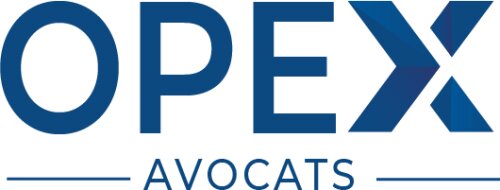Best Transportation Lawyers in Grenoble
Share your needs with us, get contacted by law firms.
Free. Takes 2 min.
List of the best lawyers in Grenoble, France
About Transportation Law in Grenoble, France
Transportation law in Grenoble, France is a complex field encompassing a wide array of regulations and statutes that govern movement infrastructure, vehicle compliance, public transport, and the rights and obligations of passengers and transport operators. Grenoble, known for its mountainous terrain and proximity to ski resorts, has a diverse and comprehensive public transportation system, with trams, buses, cycling paths, and major highways playing crucial roles. Local laws are thereby crafted to ensure efficient transit, safety, and environmental compliance, reflecting the region's focus on sustainable development and urban mobility.
Why You May Need a Lawyer
There are several situations in which individuals or businesses may require legal assistance with transportation-related matters in Grenoble:
- Traffic Accidents: Legal representation can be critical for negotiating settlements or litigating cases involving personal injury or property damage.
- Compliance Issues: Businesses, especially those involved in logistics, must navigate complex regulatory landscapes. Legal advice ensures compliance with local and EU transportation standards.
- Public Transport Disputes: Passengers or transport operators might encounter disputes related to services that require mediation or legal intervention.
- Contract Disputes: Legal assistance can help resolve disagreements in transportation contracts or agreements effectively.
- Licensing and Permits: Assistance in obtaining the necessary permits or contesting licensing issues is often necessary for businesses.
Local Laws Overview
Several key aspects are critical to understanding transportation laws in Grenoble. Firstly, environmental laws strongly influence transportation policies, emphasizing reduced emissions and promoting public transit solutions. Cycling regulations and rights of way are important for urban mobility, reflecting the city's commitment to reducing its carbon footprint. Traffic laws, including speed limits, DUI regulations, and vehicle safety standards, are rigorously enforced to ensure public safety. Additionally, Grenoble must adhere to broader national and EU transportation regulations, which address vehicle emissions and rail transport standards.
Frequently Asked Questions
What are the main modes of transportation in Grenoble?
Grenoble provides a robust public transportation network that includes trams and buses, supported by cycling paths and roadways for private vehicles.
Are there specific laws for bikes and electric scooters in Grenoble?
Yes, Grenoble enforces regulations governing bike lanes, helmet requirements, and speed limits for electric scooters, supporting safe and efficient travel.
What should I do if I am involved in a traffic accident in Grenoble?
Ensure safety first, then contact emergency services if necessary, exchange information with other parties, and consider reaching out to a lawyer for any legal implications.
Do public transport operators have specific legal responsibilities in Grenoble?
Yes, operators must comply with service quality standards, safety requirements, and environmental regulations to ensure safe and efficient public transit.
Are there any environmental transportation regulations specific to Grenoble?
Grenoble has initiatives aimed at reducing emissions, promoting electric vehicles, and enhancing public transport to align with environmental objectives.
How can I contest a parking ticket in Grenoble?
If you believe a parking ticket was issued in error, legal services can help you draft appeals and navigate local dispute resolution processes.
What permits are required for commercial vehicles operating in Grenoble?
Commercial vehicles may need specific permits addressing weight, emissions, and cargo nature. Legal advice ensures smoother operations and regulatory compliance.
Is there a legal requirement for winter tires in Grenoble?
During certain months, winter tires or chains may be required due to weather conditions, and failing to comply can result in fines.
How do I file a grievance against a public transport service in Grenoble?
First, contact the transport provider with your complaint. If unresolved, legal assistance can help mediate or escalate the issue to a regulatory body.
What legal protections exist for disabled passengers in Grenoble?
Services must be accessible, ensuring non-discrimination and reasonable accommodations under national and EU laws.
Additional Resources
For more in-depth information, several resources can be particularly helpful:
- Grenoble Transport Authority (TAG): Offers comprehensive information on public transport services, regulations, and schedules.
- Chamber of Commerce and Industry of Grenoble: Provides guidance for businesses involved in transportation and logistics.
- Local Government Office: Offers resources on permits, traffic regulations, and environmental transportation policies.
Next Steps
For those needing legal assistance in transportation matters, consider contacting local legal practitioners who specialize in transportation law. Initial consultations can help clarify your situation and provide a pathway to resolution. The local bar association in Grenoble can recommend qualified lawyers specializing in transportation law, ensuring you receive tailored and professional advice. Always ensure that legal practitioners consulted are aware of both local laws and the broader national and EU regulations that might affect your case.
Lawzana helps you find the best lawyers and law firms in Grenoble through a curated and pre-screened list of qualified legal professionals. Our platform offers rankings and detailed profiles of attorneys and law firms, allowing you to compare based on practice areas, including Transportation, experience, and client feedback.
Each profile includes a description of the firm's areas of practice, client reviews, team members and partners, year of establishment, spoken languages, office locations, contact information, social media presence, and any published articles or resources. Most firms on our platform speak English and are experienced in both local and international legal matters.
Get a quote from top-rated law firms in Grenoble, France — quickly, securely, and without unnecessary hassle.
Disclaimer:
The information provided on this page is for general informational purposes only and does not constitute legal advice. While we strive to ensure the accuracy and relevance of the content, legal information may change over time, and interpretations of the law can vary. You should always consult with a qualified legal professional for advice specific to your situation.
We disclaim all liability for actions taken or not taken based on the content of this page. If you believe any information is incorrect or outdated, please contact us, and we will review and update it where appropriate.








